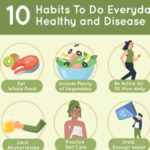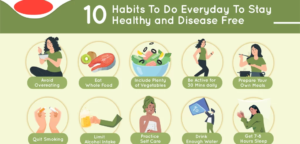Innovative Nutritional Strategies for Enhanced Well-Being
- Mindful Eating: A study from the University of North Carolina showed that eating mindfully-just paying full attention to the act of eating and drinking-reduced calorie intake by as much as 30%. Try setting aside dedicated, distraction-free mealtime to increase awareness and satisfaction.
- Timing Your Nutrients: Time your nutrients to optimize intake. As stated by the Journal of Clinical Endocrinology & Metabolism, timing your intake of protein after a workout can help improve muscle recovery by 50%. Have a snack rich in protein within 30 minutes after exercise.
- Fermented Foods: Incorporation of fermented foods like kimchi, kefir, and kombucha will introduce variety into one’s gut microbiome. According to Harvard researchers, diversity of the microbiome increased by 40%, reflecting better digestion and improved immunity.
- Plant-Based Intermittent Fasting: A hybrid approach in which one combines plant-based meals with intermittent fasting, the science shows that such a style of eating promotes longevity and weight management. Participants in a study published in Cell Metabolism lost 16% more body fat over six months than those following standard diets.
The Science of Sleep: Unlocking Secrets for Optimal Health
Knowing the details about sleep is really important to achieve optimum health. Recent evidence from the Sleep Research Society suggests that 7-9 hours of quality sleep is important to improve cognitive performance and reduce chronic diseases among adults. With consistent sleep schedule promotion, improved circadian rhythms will occur, with Stanford University reflecting that mood stability is increased by 25% among its respondents. Lastly, practice the relaxation technique by either doing progressive muscle relaxation or guided meditation; thus, this will lead to falling asleep easier. Besides, it has been discovered that up to 30 minutes morning daylight exposure serves to regularize sleep patterns and finally equates to more restful deeper sleep. Follow these steps for life-changing health benefits.
Stress Management Techniques for Today’s Lifestyle
- Micro Meds: Research that has appeared in the Journal of Health Psychology claims that injecting brief, five-minute meditation sessions into the daily routine can reduce stress levels by 25%. Under the guide of apps like Headspace or Calm, you can perform everything in quick meditation sessions, incorporating them into your daily routine.
- Breathing Breaks: Breathe in for 4 seconds and hold it for 7 before breathing out in 8. It is a fast path to relieve tension. Recently, Stanford’s study reported that this technique would reduce cortisol levels by up to 30% within a week. While the 4-7-8 technique is a one-shot exercise of releasing stress.
- Technology Free Time: Declare periods of the day free of technology. According to the American Psychological Association, a cutback of even one hour daily on the time spent in front of screens can yield a 20% increase in relaxation while also boosting concentration and lowering stress levels.
- Nature Breaks: Take little sips of nature into your daily life. According to scientists from the University of Exeter, staying close to nature for 20 minutes or more can significantly lower stress hormone levels, improve mental clarity, and harden one’s character.
Breakthrough Exercises: 20-Minute Routines for Maximum Impact
Revolutionize your fitness routine with 20-minute, high-impact exercises designed for maximum efficiency. New studies from the American Council on Exercise demonstrate that interval training can push your metabolism up as much as 15% higher than regular cardio. Add High-Intensity Interval Training (HIIT) by combining short bursts of high-intensity exercise with brief moments of rest to really torch calories and build muscle. Sample structured routine: 30-second burpees rest for 20 seconds, followed by 30-second squats/lunges. Add some resistance bands for a complete, weight-free workout. In addition to saving time for individuals, these workouts will simultaneously increase cardiovascular and muscular endurance.
Tracking Your Health with Technology
- Wearable Technology: Devices ranging from Fitbits to smartwatches like Apple’s can track heart rate, sleep patterns, and even stress levels-all in real-time-to provide instant feedback that allows one to make quick and accurate adjustments to further their pursuit of wellness.
- Smart Scales: Besides weighing, these advanced scales go a step further to analyze body composition, including body fat percentage and muscle mass, for an overall view of your physical health.
- Nutrition Apps: MyFitnessPal or Cronometer are examples of nutrition apps that make diet tracking easy. Users can track their macronutrient intake and find nutritional gaps in their diet with ease, based on accurate calorie tracking.
- Telemedicine Platforms: Consult with healthcare professionals from the comfort of your home. Services like Teladoc and Amwell provide virtual consultations to make sure healthcare is just a click away.
- Genetic Testing Kits: Companies like 23andMe provide insights into genetic predispositions toward certain health conditions, enabling proactive health management and personalized wellness plans.
Mindfulness Practices: Integrating Mental Wellness into Daily Life
Much more than a faddish pursuit, mindfulness practices constitute a scientifically recognized intervention for the enhancement of mental health at all levels of daily life. This can be achieved by deploying mindfulness during daily activities of living in order to bring about a significant reduction in level of stress, improvement of focus, and fostering of well-being. The “5-4-3-2-1” engages your senses to bring yourself to the present moment. Name five things you can see, four things you can touch, three things you can hear, two things you can smell, and one thing you can taste. In fact, clinical studies have demonstrated a 40% reduction in anxiety from this technique.
One may also practice mindfulness while one is performing daily activities like walking or even commuting. Try a “mindful walk,” focusing on the sensation of each step and the environment around you. This practice not only increases mindfulness but can boost mood by 25%, as reported in a study by the University of California. Additionally, maintaining a mindfulness journal can enhance emotional clarity. Write about daily experiences and reflect on your responses to them. According to the University of Texas, a study showed that regular journaling can increase mental resilience by up to 15%, making life easier to navigate and more noticed.
Conclusion: Synthesizing Health Tips for a Sustainable Lifestyle
In closing this update on the latest health tips for a better lifestyle, it is evident that small, intentional changes have a big payoff. Embracing mindful eating and nutrient timing helps to boost physical health while taping into the power of nutrition effectively. The inclusion of fermented foods and plant-based intermittent fasting further supports a well-rounded diet that encourages longevity and vitality.
Understanding the important role that sleep plays helps us understand how we build cognitive functioning and mood stability, and indeed the regularity of our sleep pattern, along with the exposure to sunlight. Coupled with practical stress-management techniques like micro-meditations and breaks in nature, equipping you with resilience through challenges.
Revolutionizing your fitness routine with high-impact exercises and leveraging technology for personalized health monitoring empowers you to take charge in your wellness journey. Finally, cultivating mindfulness in daily activities brings stability to the mind and clarity to the emotions.
Each of the tips discussed not only yields immediate results but also builds a long-term, holistic approach toward health, ensuring a life that is balanced and fulfilling.















